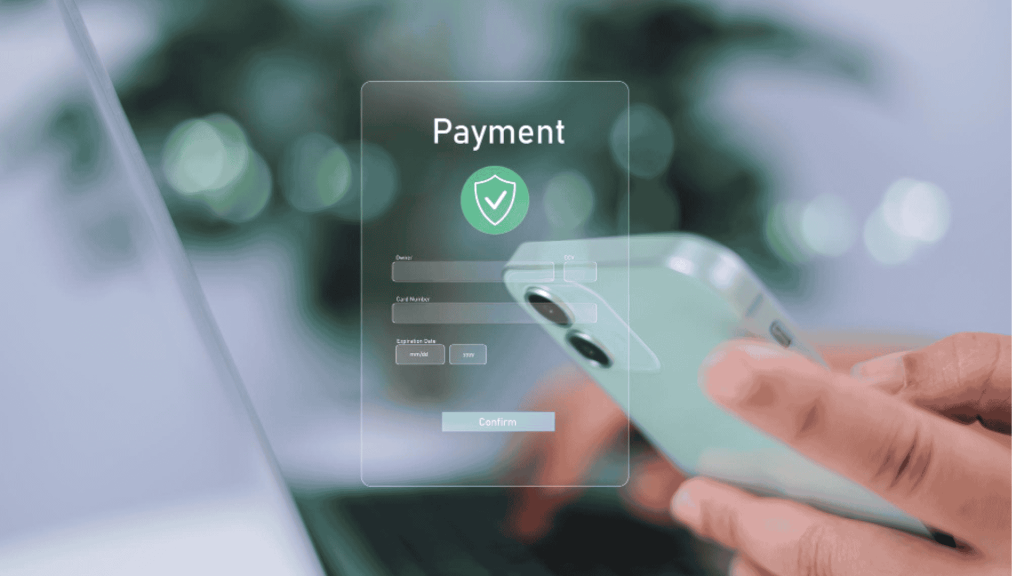In 2025, merchants that fail to provide a secure, fast, integrated payment gateway will lose customers to competing businesses with better checkout processes. Slow transactions, fraud opportunities, and fewer payment options frustrate buyers and lead them to abandon their carts. Thus, lost sales are inevitable. The risk goes beyond immediate lost sales. Businesses that accept card payments and are not PCI DSS compliant face penalties, while high-risk companies may be cut off from payment processing systems altogether. Finding a high-risk payment processor like Stripe is still challenging for high-risk merchants in markets such as CBD or online gaming. By choosing the right payment gateway integration, businesses can transform the transactional experience from a liability to an opportunity.
This blog will evaluate how to determine the best payment gateway for a traditional or e-commerce small business or enterprise.
Companies that can provide a safe and seamless transaction process are the future of commerce. As payment technologies grow and customer expectations rise, this guide will help outline the road to success in payment processing in 2025 and beyond.
What is a Payment Gateway?
A payment gateway is, fundamentally, the necessary infrastructure for secure digital transactions from buyer to seller. As an advanced technology, it performs real-time authorization and processing for online and in-store payments. A payment gateway acts as a bridge between customer payment methods and merchant accounts with financial institutions. Today, payment gateways accurately secure three main security activities:
- They read payment card information correctly and confirm information during the initial step of a transaction.
- Second, they employ advanced encryption protocols to protect sensitive financial data throughout payment.
- Finally, they securely transmit transaction information between all parties involved in the payment ecosystem.
As the central nervous system of digital commerce, a well-integrated payment gateway seamlessly connects multiple touchpoints:
- e-commerce websites process orders,
- mobile applications handle in-app purchases,
- payment processors verify funds and
- banking networks complete the money transfer.
This interconnected system operates behind the scenes to deliver the instant, hassle-free transactions that today’s consumers expect. Understanding this gateway technology becomes particularly important for businesses evaluating their payment processing options when considering PCI DSS compliance requirements or comparing different online payment platforms.
The proper payment gateway integration authorizes transactions and provides the security framework that protects both businesses and their customers from potential fraud.
How To Implement Payment Gateway Integration?
There are four primary integration methods, each with pros and cons:
| Method | User Experience | PCI Compliance Required? | Best For |
| Hosted Gateway | Redirects to third-party pages | No | Small businesses |
| Direct Post Method | Stays on your site | No | Medium-sized businesses |
| Non-Hosted (API) Gateway | Fully on your site | Yes | Large enterprises |
| White Label Gateway | Custom-branded solution | Yes | Businesses needing branding control |
1. Hosted Payment Gateway
Hosted Payment Gateways offer a customer a hosted solution where the customer will be directed to a third-party webpage (for example, PayPal).
From a merchant perspective, there’s minimum setup and no PCI DSS compliance requirements. This is a good solution for small businesses using solutions like Stripe or Square. However, the downside is that the merchant has no control over its potential customers’ checkout experience.
2. Direct Post Method
The Direct Post Method keeps customers on your site while transmitting card data directly to the processor. It balances branding opportunities with simplified compliance, though it provides slightly less security than full integration.
3. Non-Hosted (API) Payment Gateway
A Non-Hosted API Payment Gateway processes everything on your website for complete control, delivering maximum security and customization for large enterprises, albeit with full PCI compliance obligations.
4. White Label Payment Gateway
Prominent white-label payment gateways like PayXpert or Akurateco provide out-of-the-box configurations that can be branded for quick deployment and compliance at a level of PCI compliance but with a higher price tag, primarily suitable for organizations looking to provide a branded payment experience.
PCI DSS Compliance: Protecting Payment Data in 2025

The Payment Card Industry Data Security Standard (PCI-DSS) is respected worldwide as the standard for secured payment processing. It provides essential guidelines for any company that handles credit cards.
The PCI compliance standards were developed by the key card networks, including Visa, Mastercard, American Express, and Discover. They help merchants prevent data breaches and establish customer confidence in their payment mechanisms.
Who Must Achieve PCI Compliance?
Any company that stores, processes, or transmits cardholder data must remain PCI-DSS compliant. This applies across all transaction channels:
- E-commerce stores with integrated payment gateways
- Physical retailers using POS systems
- Service businesses accepting recurring payments
With fully hosted payment gateways like PayPal or Stripe Payment Gateway Checkout, merchants usually have fewer compliance obligations because the payment processing company is responsible for most security obligations.
Therefore, hosted solutions are most appealing to small businesses because they involve less liability, minimal payment gateway implementation, and limited or no PCI validation. However, if you have access to sensitive financial information, you must comply with some requirements set forth by industry organizations.
In particular, you must comply with the Payment Security Standards (PCI DSS) when integrating payment processing card payments. The four most significant card associations based on security standards in 2004 include:
- Visa
- MasterCard
- American Express
- Discover
How To Become PCI Compliant | A Step-by-Step Process
You must fulfill the following stages to become PCI compliant:
- Compliance Level Assessment: Your validation requirements depend on annual transaction volume, with four tiers ranging from small merchants (<20,000 transactions/year) to enterprise-level processors (>6 million transactions).
- Self-Assessment Questionnaire (SAQ) Completion: Merchants must complete the appropriate SAQ version (nine variations), matching their payment processing methods. This comprehensive audit covers all security controls required by PCI standards.
- Attestation of Compliance (AOC) Submission: The AOC form will be your official proof of compliance. If handling card data internally, retain this documentation for your records and supply it to your acquiring banks if requested.
- Vulnerability Scanning: For merchants accepting card transactions internally, quarterly scans must be conducted by an Approved Scanning Vendor (ASV) to assess any vulnerabilities in network security.
- Final Documentation: Submit your SAQ, AOC, and scan reports (if applicable) to your acquiring bank and any relevant card brands.
If you are in a business that uses a white label payment gateway or a developed payment solution, following the PCI standards is especially important. Performing security audits regularly, conducting employee training programs, and updating your system can help ensure continued protection from the latest payment security threats.
Selecting the Ideal Payment Gateway for Your Business Needs in 2025

Choosing the payment gateway integration can significantly affect your efficiency, the satisfaction of your customers, and your profit. This thorough examination will help you sort through the distinctions of the online payment processors and find the right one for you.
Key Considerations When Comparing Payment Gateways
Before examining specific providers, understand these critical factors:
- Transaction fees (percentage + fixed charges)
- Supported payment methods (cards, digital wallets, bank transfers)
- Global currency acceptance and conversion rates
- High-risk business accommodation (for CBD, gaming, etc.)
- Integration complexity with your e-commerce platform
- Payout speed and fund availability
| Gateway | Best For | Fees | High-Risk Support? |
| Stripe | Startups & SaaS | 2.9% + $0.30 | No |
| PayPal | Global sellers | 2.9% + fixed fee | No |
| Square | Retail & in-person sales | 2.6% + $0.10 | No |
| Authorize.Net | High-volume businesses | $25/month + 2.9% | Yes |
| High-Risk Gateways (e.g., Durango) | CBD, Forex, Gaming | Custom pricing | Yes |
Leading Payment Gateway Solutions
Stripe
Ideal for: Tech startups, Software as a Service (SaaS) platforms, and subscription-based businesses
Stripe has captured the hearts of many businesses with its competitive pricing (2.9% to $0.30) for transactions and built a strong name for itself as the payment gateway solution for a business that wants a custom payment gateway integration. Stripe has a stellar API and lets you customize your experience every step of the way. It also has a great global reach, supporting 135 currencies and fraud prevention methods. The only major thing to remember is that Stripe doesn’t provide service to high-risk industries, so ensure you are not in that fold.
PayPal
Ideal for: International sellers and marketplace platforms
Charging 2.9% plus a fixed fee that varies by country, PayPal remains a dominant force in global payment processing. With such a high degree of brand recognition, there is already an inherent level of trust among customers, plus one-touch checkout and buyer/seller protection, which has the vendor/buyer experience locked down. Vendors should consider that chargebacks through PayPal can also be expensive compared to other chargeback programs and can burden businesses with frequent disputes.
Square
Ideal for: Brick-and-mortar retailers with online stores
Square’s attractive rate of 2.6% + $0.10 for in-person payments makes it particularly appealing for businesses operating physical and digital storefronts.
Square provides a robust platform with a combined POS and online payment system. It gives merchants free card readers for in-person payments and integrated inventory management. It is an excellent fit for businesses wanting a seamless transaction gateway for offline and online sales on their websites and physical locations.
Authorize.Net
Ideal for: High-volume merchants needing reliability
Operating on a $25 monthly fee plus 2.9% per transaction, Authorize.Net processes over a billion transactions annually, making it a powerhouse for established businesses.
The platform supports high-risk payment gateway requirements and offers advanced recurring billing options, though it does require setting up a separate merchant account. This solution is particularly well-suited for businesses with complex payment processing needs.
Durango and Payment
Ideal for: CBD, forex, gaming, and other restricted industries
These providers offer custom pricing based on business type, catering to industries often excluded from mainstream payment processing.
Their standout features include white-label payment gateway options, comprehensive chargeback protection services, and access to offshore merchant accounts. Businesses should be prepared that these solutions typically require reserve accounts as part of their risk management protocols.
Payment Gateway Integration for E-Commerce & Mobile Apps
A modern payment gateway integration should provide popular digital wallets, such as Apple Pay, Google Pay, and Samsung Pay, to satisfy the consumer expectation of fast, secure transactions.
These tokenized payment methods allow the customer to bypass entering their card data to speed up checkout and enhance security by replacing sensitive card data with encrypted tokens. When evaluating payment processors, verify their mobile wallet compatibility as support varies by:
- Geographic availability
- Device requirements
- Transaction limits
- Supported card networks
Step-by-Step Gateway Implementation Process
In today’s mobile-first commerce environment, integrating digital wallet support has become essential for businesses looking to optimize their checkout experience.
1. Mobile Wallet Integration
Select between mainstream options (Stripe, PayPal) or specialized providers like high-risk payment gateways for restricted industries. Consider:
- Transaction fees and pricing structure
- Supported payment methods
- Fraud prevention features
- Recurring billing capabilities
2. Technical Integration Workflow
Most payment gateway providers for e-commerce platforms can provide SDKs or plugins to work with popular shopping carts (e.g., Shopify, WooCommerce), and mobile app developers typically use native SDKs via Android or iOS to develop the payment gateway functionality.
During development, use the sandbox testing environment provided by your payment processor to validate all transaction scenarios before going live.
3. Post-Integration Best Practices
After successful testing and deployment, the ongoing monitoring of your payment gateway integration becomes critical. Track key metrics like approval rates, processing times, and chargeback ratios to identify potential issues. Many businesses find that implementing a white-label payment gateway solution provides greater branding consistency across their payment flows while maintaining all the security benefits of established payment processors.
4. Special Considerations for Mobile Apps
Even with tokenized transactions, PCI DSS compliance requirements apply when handling specific payment data.
If you are a multi-region business, make sure your online payment platform supports local payment methods. Your target regions may prefer certain payment channels, and credit card penetration varies drastically around the world.
Emerging Trends in Payment Gateway Technology
As we progress through 2025, several innovations are reshaping payment processing:
- AI-powered fraud detection reduces false declines
- Cryptocurrency payment acceptance becoming mainstream
- Biometric authentication for enhanced security
- Embedded finance solutions within platforms
When choosing the best payment processor for a small business, consider your current needs and anticipated future growth. The best option ideally nets you cost savings, but it also weighs against what your specific business model requires in a payment processor, whether you want an easy-hosted option or a complex white-label payment gateway.
Pro Tip: Many providers offer a sandbox option. Always test the integration before entering into agreements to validate that the processor integrates with your operations.
Final Thoughts
A well-integrated payment gateway boosts trust, reduces fraud, and improves sales. Whether you need a simple hosted solution or a custom white-label gateway, choose one that fits your business needs. Customers are more likely to trust websites that have built-in payment systems.
Incorporate integrated payment solutions that inspire trust, enable different payment methods, and are secure to increase customer confidence. Developing safe and seamless payment methods is essential for the future of e-commerce and mobile app development.
Connect with Integrated IT Solutions today for a payment gateway for the website. Start now to experience a positive change in your venture tomorrow.
FAQs
What is the Payment Gateway Integration?
Payment gateway integration allows e-commerce organizations to access and process online payments from customers seamlessly. It is considered a fast and secure option for sharing customer invoice data.
How do you integrate a payment gateway into a website or app?
The integration process is the same whether it’s a website or a mobile application. You must choose and register for a payment gateway account and get your API keys. Then, add them to the development framework and test the payment gateway. Finally, go live with handling payment requests.
How Much Does It Cost To Integrate a Payment Gateway?
Generally, it would cost from $150,000 to $250,000. But this is not a fixed standard. The cost may depend on the requirements, size, and expertise of the developers that you hire for your project.
Which is the best payment gateway for high-risk businesses?
The best payment gateway for small businesses and high-risk merchants (CBD, gaming, etc.) should use specialized providers like Durango, PaySpace, or PaymentCloud.
What’s the difference between a payment gateway and a payment processor?
Gateway securely transmits payment data whereas the processor handles fund transfers between banks.





